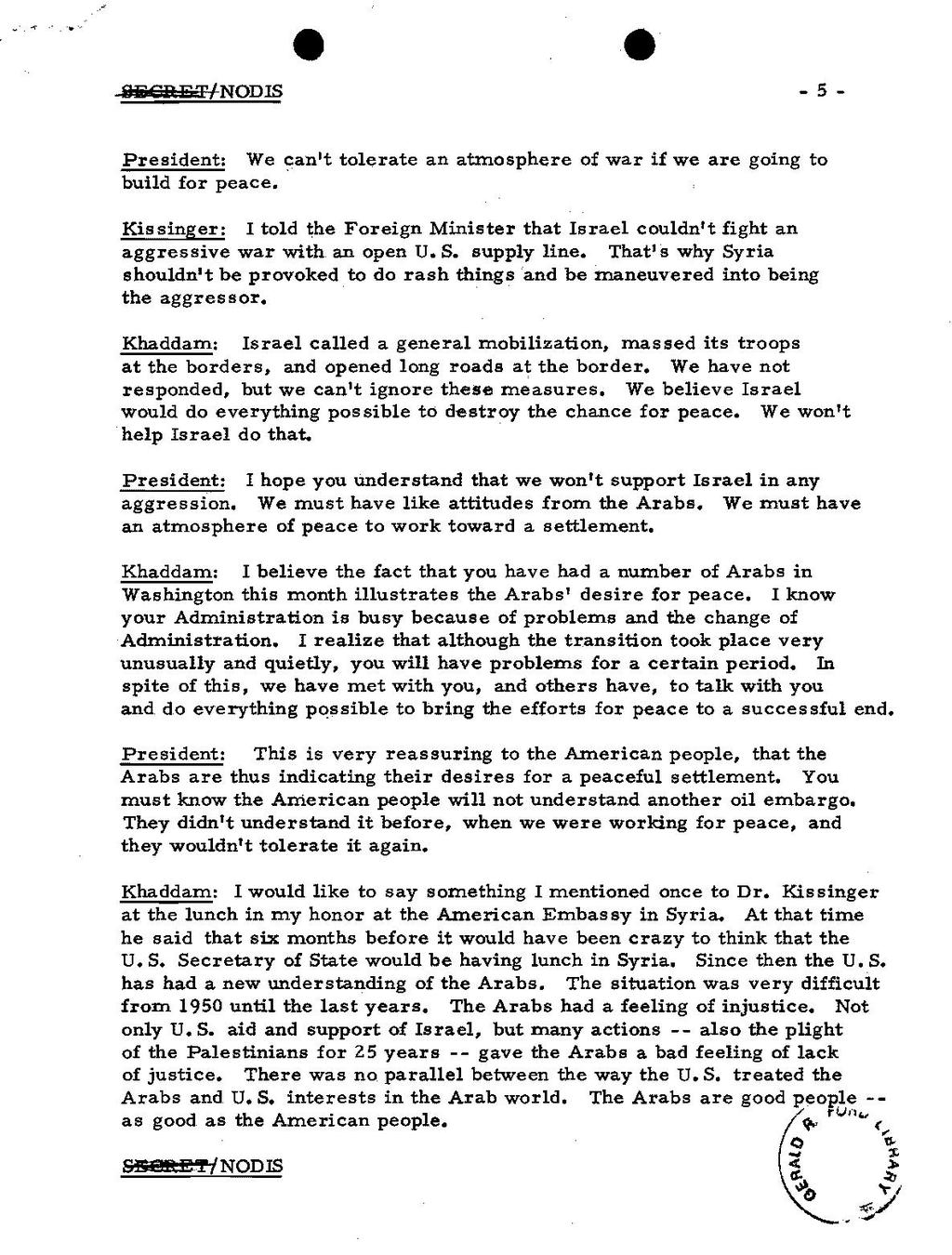President: We can't tolerate an atmosphere of war if we are going to build for peace.
Kissinger: I told the Foreign Minister that Israel couldn't fight an aggressive war with an open U. S. supply line. That's why Syria shouldn't be provoked to do rash things and be maneuvered into being the aggressor.
Khaddam: Israel called a general mobilization, massed its troops at the borders, and opened long roads at the border. We have not responded, but we can't ignore these measures. We believe Israel would do everything possible to destroy the chance for peace. We won't help Israel do that.
President: I hope you understand that we won't support Israel in any aggression. We must have like attitudes from the Arabs. We must have an atmosphere of peace to work toward a settlement.
Khaddam: I believe the fact that you have had a number of Arabs in Washington this month illustrates the Arabs' desire for peace. I know your Administration is busy because of problems and the change of Administration. I realize that although the transition took place very unusually and quietly, you will have problems for a certain period. In spite of this, we have met with you, and others have, to talk with you and do everything possible to bring the efforts for peace to a successful end.
President: This is very reassuring to the American people, that the Arabs are thus indicating their desires for a peaceful settlement. You must know the American people will not understand another oil embargo. They didn't understand it before, when we were working for peace, and they wouldn't tolerate it again.
Khaddam: I would like to say something I mentioned once to Dr. Kissinger at the lunch in my honor at the American Embassy in Syria. At that time he said that six months before it would have been crazy to think that the U.S. Secretary of State would be having lunch in Syria. Since then the U.S. has had a new understanding of the Arabs. The situation was very difficult from 1950 until the last years. The Arabs had a feeling of injustice. Not only U.S. aid and support of Israel, but many actions -- also the plight of the Palestinians for 25 years -- gave the Arabs a bad feeling of lack of justice. There was no parallel between the way the U.S. treated the Arabs and U.S. interests in the Arab world. The Arabs are good people -- as good as the American people.
SECRET/NODIS
